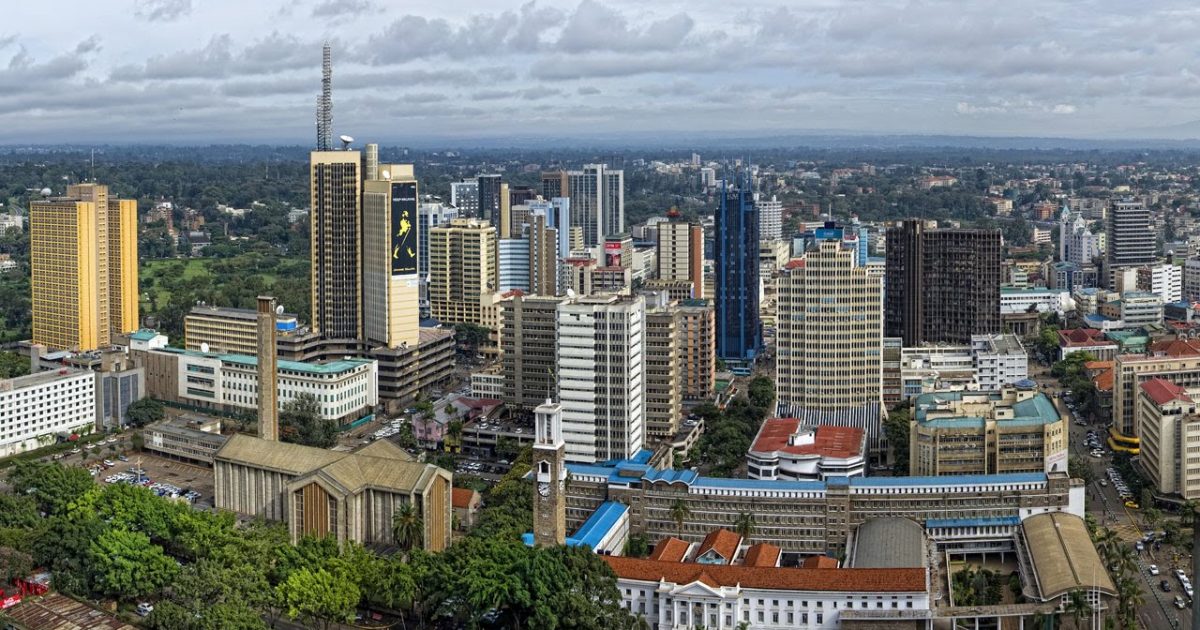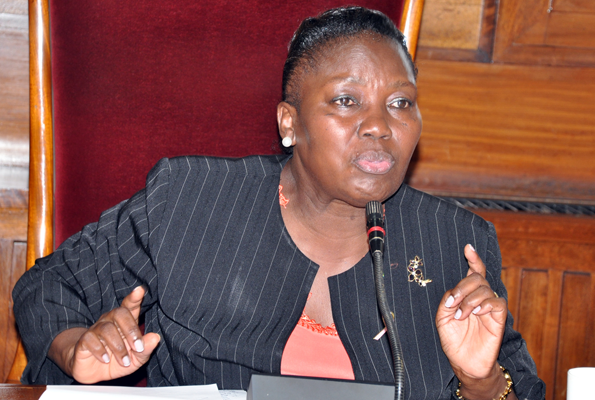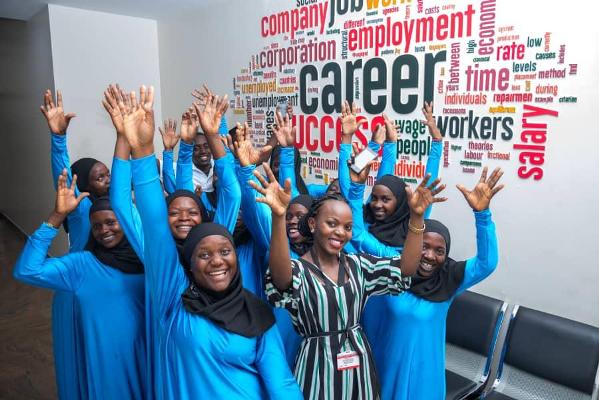In 2007, Wanjiru (not her real name) lost her entire investment to post-poll violence.
Then, she watched helplessly as looters emptied her duka. A business she had painstakingly built for years disappeared in one day moments after chairman of the defunct Electoral Commission of Kenya, the late Samuel Kivuiti pronounced former President Mwai Kibaki as the winner in the disputed 2007 General Election.
She was lucky to get away with her life. But this year, she is not taking chances. Ms Wanjiru has already built a temporary structure on a land she owns in Kiserian, Kajiado County.
This will be her ‘safe haven’ throughout the election period, which she fears might turn violent.
“They are saying that if their man is not elected there will be violence,” she told Financial Standard from her Kibera home in Nairobi.
Wanjiru is just one of the many players in the so-called kadogo economy of Kibera that when it sneezes, a good chunk of Nairobi’s formal economy and by extension the rest of the country, catches a cold, so to speak.
Kibera, with a population of about 250,000 people provides cheap but vital labour to the factories in Nairobi’s Industrial Area.
Workers from the slum include sweepers and office messengers.
Every day, week or month, the wages these people take back home feed into the vibrant economy of the slum in the form of the Sh1,500 rent to structure owners to payment of Sh10 for use of toilets and the purchase of household items from businesses like Wanjiru’s.
This vital cog of the economy is now coming to a standstill. Some few metres from Wanjiru’s home is Toi Market, one of the largest informal markets dealing in all kinds of merchandise. Here, common products such as second-hand clothes for children are scarce.
Most of the traders, estimated at about 5,000, are not re-stocking. They say they are waiting to see what will transpire after next week’s elections.
The market, just as Wanjiru’s shop, suffered in the hands of arsonists who burnt down goods worth millions of shillings. The story of businesses employing a wait-and-see attitude ahead of the polls is replicated in other major towns around the country.
In Naivasha, casual labourers in flower farms are leaving town in their droves for fear of the events of 2007/08 that still haunts them recurring. In Kisumu, most shops and supermarkets such as Tumaini have run out of perishables. They are not re-stocking.
The United Nations’ office in Nairobi has given terse instructions to its workers on Election Day: They should all carry a small bag in which they can put all their vital documents – passports, title deeds and driving licences. Those who live close to their offices in Gigiri, according to an internal memo seen by Financial Standard, have been advised to take refuge in the UN compound on August 8.
Those who live away from the Central Business District have been asked to be on standby to take the next available flight out of Jomo Kenyatta International Airport should things go awry after the polls.
The workers have also been advised to stock up as shops might be closed on voting day. Foreigners have also been urged to avoid unnecessary movement, with contingency plans to fly them out to Uganda or Tanzania in place while locals have been advised to travel to their rural homes.
What should be an innocuous democratic exercise is insidiously altering the pulse-rate of the country’s economy.
The private sector, which lost out in the 2008 skirmishes – is on edge. According to Stanbic Bank’s Purchasing Managers Index (PMI), a critical index that has been used to monitor activities in the private sector, it slipped to 47.3 in June from a 49.9 in May.
Business conditions
This was the lowest reading since the series began, pointing to a record contraction in private sector activity. In PMI, readings above 50 signal an improvement in business conditions on the previous month while readings below 50 show deterioration.
The reading went below the crucial 50 threshold for the first time in April this year due to “weaker underlying demand conditions, and lower willingness to spend”, according to a Stanbic Bank statement. Manufacturers too foresee a gloomy outlook for the country in the next three months. This is according to the Kenya Association of Manufacturers’ Barometer Survey by Standard Investment Bank and the Kenya Association of Manufacturers (KAM). According to the survey, 57 per cent of Kenyan manufacturers are pessimistic about the general business outlook until September compared to 16 per cent in the second quarter of 2016, with more than half (55 per cent) not planning to undertake major new investments in the next 12 months. Most attributed their decision to uncertainty in demand (61 per cent) while another 55 per cent cited political uncertainty as the key factors limiting new capital investments. And this, it seems, has now cascaded to the whole economy, with the latest data from the Kenya National Bureau of Statistics (KNBS) indicating that real Gross Domestic Product (GDP)- total value of goods and services produced in a year – grew by 4.7 per cent in the first quarter of this year. This was the slowest quarter growth since 2013.
“If you look at Kenya’s GDP growth rate, it dips just before the polls and picks after. Public expenditure goes up to at tract votes, private sector waits to see the political direction,” said Dr XN Iraki, a senior lecturer at the University of Nairobi’s School of Business.
“We grow up and realise that elections come and go. Politicians protect their interests at our expense. We also must control our politicians using our votes, including recalls.”
Property consultancy firm Knight Frank Kenya’s Managing Director Ben Woodhams noted that although a lot of developers this year had applied for building approvals, most of them did not start construction due to election jitters.
A report by the same firm found that last year, the market for high-end commercial and residential spaces shrank following a decrease in volume of transactions and prices of prime properties.
Multi-party elections in Kenya, generally, have always had a negative impact on the economy. A study by the Institute of Economic Affairs, a public policy think-tank, found that negative impact of election had been greatly witnessed in the multi-party period than in the previous single-party era of between 1963 and 1990.
The report found that during the single-party era, there was a 20 per cent chance of witnessing a lower growth rate compared to a 60 per cent chance of witnessing a lower growth during the multi-party period of 1990 and 2014.
It has been even worse since Kenyans turned against each other in 2007 when more than 1,000 lives were lost and property worth billions of shillings destroyed.
Social Media
Ms Wanjiru says it is not her neighbours she fears most, but politicians and political commentators who have been spewing putrid messages of hate in rallies and on social media.
The European Union (EU) has already warned that the country risks plunging into election-related violence due to the heightened campaigns that appear to be polarising.
The head of the EU Election Observer Mission Marietje Schaake, yesterday called on all players to take precautions to forestall violence.
“I would like to say that it is no secret there are concerns about the possible outbreak of violence. This is not inevitable, and it is clear that this would create a situation where everyone loses,” said Ms Schaake.
The main political players have committed to maintain peace during the electioneering period. During the presidential debate in which his political arch-rival, Jubilee’s President Uhuru Kenyatta did not show up, opposition leader Raila Raila Oding said: “There will be no violence so long as the elections will be free and fair.”
Recently, Prof Michael Chege, a scholar in African development studies talked of the need to re-look at the country’s Constitution, particularly the electoral system, which has entrenched a winner-takes-all mentality to reduce tensions.
“We get everything right except in the Presidential elections; we get along very well except in the presidential elections,” said Prof Chege. He gave an example of Mauritius, whose population is made up of different racial groups, but which ensures that every party gets a seat at the high table. Other examples, according to Prof Chege, include South Africa, which still bears the scars of apartheid.
Credit: The Standard





